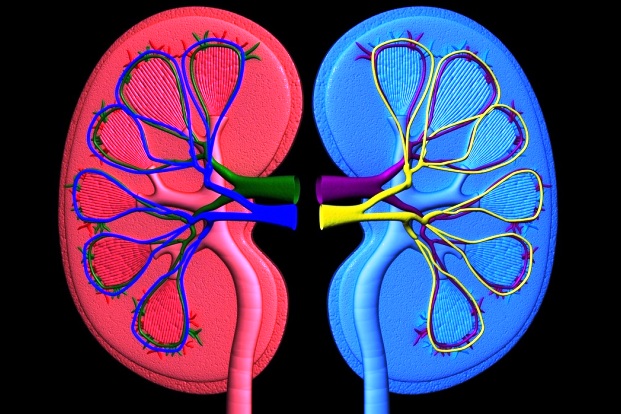Symptoms, Causes and Risk Factors of Chronic Kidney Disease
Apr 19, 2022
Kidney Disease is one of the leading causes of multi-organ failure and even mortality in India. Kidney Disease doesn’t happen immediately or suddenly, it progresses and causes issues in the filtration system of the body. If you have any family history associated with kidney failure, it is important that you are aware of the signs and symptoms associated with the same. It is imperative for you to understand that early detection, timely treatment, and the right prevention is essential.

Signs and Symptoms Associated with Chronic Kidney Disease:
The common signs associated with loss of kidney functions are mentioned below. If you are experiencing any of the same, it is advised that you consult a nephrologist – Kidney Specialist at the earliest.
- Vomiting
- Nausea
- Loss of appetite
- Sleep problems
- Fatigue & weakness
- Changes in frequency of urination
- Muscle twitches & cramps
- Lowered mental sharpness
- Swelling of ankles and feet
- Chest pain when fluid has built up across the heart lining
- Persistent itching
- Shortness of breath if the fluid buildup in lungs
- Hypertension or high blood pressure which is tough to control
Signs symptoms of a kidney disease are mostly nonspecific which means they can also be a result of other illness. As our kidneys are very adaptable & capable to compensate for a lost function and symptoms may not occur till an irreversible damage takes place.
When to Consult a Doctor
You can consult a doctor if you are experiencing any of the signs & symptoms of a kidney disease. If you have any medical condition which raises your risk of a kidney disease, your doctor could monitor your blood pressure & kidney function with the urine & blood tests during the regular office visits. Ask your doctor about the necessary tests that are necessary for you.
Causes of Chronic Kidney Failure:
A chronic kidney disease takes place if a condition or a disease impairs the kidney function, causing damage to the kidney to get worse over many months or years.
Conditions and diseases which result in chronic kidney disease include:-
- High Blood pressure
- Type 1 or Type 2 diabetes
- Glomerulonephritis which is an inflammation of the filtering units of a kidney
- Polycystic kidney disease
- Interstitial nephritis which is an inflammation of tubules of kidney & surrounding structures
- Prolonged obstruction of urinary tract, from conditions like prostate, some cancers, and stones
- Pyelonephritis or recurrent kidney infection
- Vesicoureteral reflux which is a condition that leads urine to back up into the kidney
Risk factors causing Chronic Kidney Failure:
Factors which could raise our risk of a chronic kidney disease include:
- High blood pressure
- Diabetes
- Cardiovascular disease
- Obesity
- Smoking
- Family history of some kidney disease
- Old age
- Abnormal kidney structure







